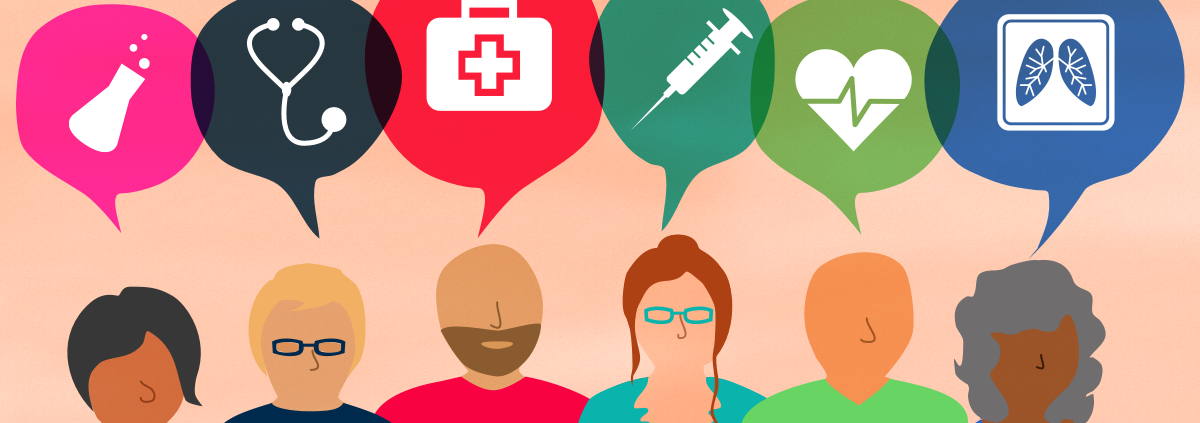The Value of Patient Perspectives in Answering Key Business Questions
Published March 1st, 2024 | 3 Minute Read
Patient input is vital from a commercial, research, and clinical perspective. They alone are the experts in their experience with a given condition. Enhanced understanding of the patient experience can help ensure that communications are clear and relevant to the target audience to help identify and drive patient-centered solutions and care strategies.
For over a decade, Health Union has regularly fielded condition-specific surveys within its growing portfolio of online health communities to bring the voice of the patient to the forefront. These surveys have collected thousands of responses from patients and caregivers living with a range of chronic and complex conditions. They have become deeply valuable sources – to both Health Union and industry partners – of timely, relevant, patient-reported data that offer genuine insight into the patient experience.
In recent years, Health Union’s syndicated offerings have expanded to better meet client needs, ranging from high-level reports for clients seeking condition overviews or specific data points to comprehensive reports that take an in-depth look at the patient experience. Core components of Health Union’s syndicated program include:
 In America, an annual IRB-approved survey that collects condition-specific feedback from over 30,000 respondents, across 50 conditions. This streamlined survey provides high-level insights into condition impact as well as treatment awareness, use, and satisfaction and offers an opportunity to examine similarities and differences across conditions.
In America, an annual IRB-approved survey that collects condition-specific feedback from over 30,000 respondents, across 50 conditions. This streamlined survey provides high-level insights into condition impact as well as treatment awareness, use, and satisfaction and offers an opportunity to examine similarities and differences across conditions.
 Patient Experience, a condition-specific, in-depth, IRB-approved research program, that focuses on quality of life, unmet needs, HCP dynamics and relationship, disease burden, treatment awareness, and treatment experiences — with quota-sampling to better represent important subgroups.
Patient Experience, a condition-specific, in-depth, IRB-approved research program, that focuses on quality of life, unmet needs, HCP dynamics and relationship, disease burden, treatment awareness, and treatment experiences — with quota-sampling to better represent important subgroups.
These core components mean that Health Union can now better help clients:
- Understand condition-specific patient journeys
- Validate target patient profiles (in terms of demographics, disease burden, treatment experiences, and information-seeking)
- Construct brand user profiles and how they compare to others using a competing product
- Explore varied condition experiences and the changes that occur according to line of therapy or disease stage
- Augment situation analyses and/or RWE or HEOR-related analyses
Health Union’s syndicated research harnesses patient driven insights to help brands develop foundational knowledge from the patient perspective.
Want to know if Health Union offers syndicated reports in a specific condition? The full range of available and upcoming research reports can be found here.
Interested in learning more? We invite you to fill out the form below.
Related Articles
Impact of employment status on health-related quality of life for people living with autoimmune conditions
This abstract was published in 2016 showcasing data from Health Union’s PsA, RA, IBD, Plaque Psoriasis & MS In America 2016 surveys.
New Study Finds Asthma Patients Rely Heavily on Rescue Inhalers, Condition Proves Difficult To Diagnose
Asthma patients report most frequently using rescue inhalers for treatment, showing the difficult path many people have prior to being correctly diagnosed.
New National Study Finds Crohn’s Disease Diagnosis Difficult to Obtain and Life Altering
In a new national survey of Crohn’s disease patients, Health Union reveals that it was not uncommon for patients to see multiple healthcare professionals (HCPs), have numerous office visits, and endure multiple diagnostic tests before receiving a diagnosis. Results demonstrate an impact on such things as the ability to work or exercise, but also on overall quality of life and social activities. Respondents wished more people understood the disease and its impact.
Related Articles
Patient Centricity Starts With Patients: Closing the Trial Recruitment Gap
There is a lot of talk in the industry about patient centricity, but is it the reality? We talk about putting the needs of patients first and keeping them central in the business decisions we make across the healthcare industry. However, as we discussed on a panel at this year’s DIA 2018 Global Annual Meeting, somehow in the effort to amplify patient centricity, a critical voice is often underrepresented—the voice of the patient.
Inaugural ‘Blood Cancer In America’ Survey Finds Patients Maintain Positive Views of Condition Being ‘Under Control’
Despite the physical, emotional and social challenges faced, three-fifths of people living with blood cancer feel that their condition is under control with current treatment plans, according to Blood Cancer In America 2018, a national survey by Health Union, LLC of people diagnosed with the condition and caregivers.
Differentiating characteristics of patients seeking a second opinion: A survey on non-small cell lung cancer patients
The findings of this study suggest that regardless of the diagnosing physician, late-stage NSCLC patients and those with no smoking history are more likely to seek a second opinion as compared to early-stage patients and those who have a history of smoking.





